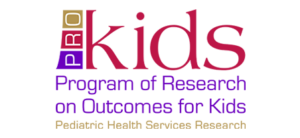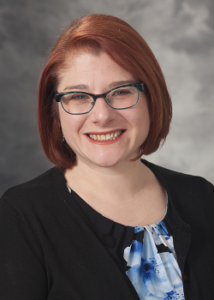- Children and Young Adults
- Diabetes
- Engagement in Research
- HIPxChange
- Patient-Centered Outcomes Research
- Stakeholder Engagement
*Free registration is required to use the toolkits provided within HIPxChange. This information is required by our funders and is used to determine the impact of the materials posted on the website.
What is the Toolkit on Patient Partner Engagement in Research (TOPPER)?
TOPPER is a comprehensive set of orientation materials that were created for the patient partners on the PCORI-funded study “Family-Centered Tailoring of Pediatric Diabetes Self-Management Resources” (Principal Investigator: Elizabeth Cox, MD, PhD). In this project, the patient partners are parents of youths and teens with type 1 diabetes and serve on the Parent Advisory Boards for the project; however, the materials in TOPPER can be adapted for a variety of types of patient partners.
Who are “patient partners”?
Patient partners are people who advise researchers throughout a research project; they include not only patients, but also their family members and caregivers.
Patient partners can provide invaluable feedback to researchers, helping to plan studies, conduct them, and disseminate results. Involvement of patient partners across all phases of a project helps researchers identify the questions that are most relevant to patients and helps produce results that patients can use to make decisions about their care.
Patient partners provide “real-time” feedback that can lead to important adjustments in study activities. For example, patient partners can advise researchers on recruitment plans and materials, data collection instruments and procedures, challenges with study implementation, interpretation of study findings, and plans for disseminating study results to meet the needs of various stakeholder groups.
How was TOPPER developed?
Patient partners in research work most effectively when they have completed an orientation program in which they can discuss their value, role, and responsibilities on the research project; learn about common research terms and processes; and practice giving effective feedback to researchers.
TOPPER is based on an orientation program developed by the Wisconsin Network for Research Support (WINRS) from 2010 – 2013 under a National Institute of Nursing Research grant (Principal Investigator: Barbara Bowers, PhD, RN). As part of the NIH grant, WINRS developed two community advisory boards. The community advisors provide feedback to researchers at the University of Wisconsin-Madison and other research institutions on recruitment flyers, materials for informed consent, survey questions, focus group protocols, and other research documents.
To prepare the community advisors for this role, WINRS developed a highly interactive orientation program grounded in principles of adult learning and appropriate for low-literacy learners. The program incorporated hands-on learning, a variety of instructional methods, and activities to help community advisors integrate new knowledge and skills with past experiences. Orientation activities focused on concrete skills to help community advisors provide constructive feedback on research materials.
WINRS staff adapted their original orientation program to create a program specifically for the patient partners in Dr. Cox’s project. TOPPER contains original and revised materials from the WINRS orientation program, along with new materials to meet the specific orientation needs of the patient partners.
Close collaboration between Dr. Cox, her research team, and WINRS ensured that the orientation program fully prepared the patient partners for their role on this particular project and for the specific research-related tasks that the project team anticipated for them.
What does TOPPER contain?
TOPPER contains the complete set of materials used in the three-hour orientation program for the patient partners (parent of youths and teens with diabetes) on Dr. Cox’s study.
Materials include:
- A session agenda
- A detailed manual for two facilitators to use during the orientation
- 20 supplementary worksheets, exercises, forms, and examples
All of the materials are written in “plain language” and can be used with low-literacy patient partners.
What are the skills that patient partners will gain?
TOPPER focuses on five key skills for patient partners:
- Discussing their role as advisors on the research project
- Recognizing common research terms and processes
- Communicating respectfully
- Contributing to effective teamwork
- Providing constructive feedback on research plans and materials
How does TOPPER promote ongoing engagement of stakeholders?
The toolkit includes activities that interest adult learners, provide opportunities for self-expression, and build group norms for respectful, focused interactions. When used to guide an orientation session, the toolkit can provide the foundation for sustained, productive communication between the research team and patient partners.
For example, since completing their orientation program, Dr. Cox’s patient partners have made substantial contributions to her research project by:
- Revising items and response sets in data collection instruments to make them more clear and relevant from the perspective of patient partners
- Recommending straightforward language for research staff and clinicians to use while recruiting and randomizing study participants to minimize potential confusion about study processes
- Modifying data collection processes in clinics, to ensure that these processes are streamlined for study participants and improve the quality and completeness of data collected
- Suggesting meaningful and family-friendly names for intervention activities to encourage families to support retention of participants throughout the study
What do patient partners say about their role as stakeholders?
All of the patient partners on Dr. Cox’s study have continued in their roles through the first year of the project. They have shared what it means to them to be stakeholders in the study:
- “The Parent Advisory Board is very excited about how its input is being taken to heart in making the research more appealing to participants.”
- “It’s actually fun knowing you’re 1) helping understand what’s going on with the research project and 2) troubleshooting and problem-solving.”
- “Being part of the Parent Advisory Board helps me feel validated, like I am able to have some small impact on other parents who are facing similar issues.”
- “I walk away feeling ‘I’, ‘we’ make a difference.”
- “I feel empowered and useful. We will help change the way kids and parents experience diabetes care and life!”
Who should use TOPPER?
Researchers, clinicians, and public health practitioners can use the toolkit as a template for developing orientation programs for various groups of stakeholders.
The orientation materials can be used without revision or adapted for a wide range of patient, caregiver or community partners.
Users of the toolkit can contact WINRS for help adapting the orientation materials: https://winrs.nursing.wisc.edu/
Funding
Development of this toolkit was supported by a grant from the Patient-Centered Research Outcomes Institute (“Family-centered tailoring of pediatric diabetes self-management resources,” PI: Elizabeth Cox). Additional support was provided by grant RC4NR012372 from the National Institute of Nursing Research and by the Community-Academic Partnerships core of the University of Wisconsin Institute for Clinical and Translational Research, grant 9U54TR000021 from the National Center for Advancing Translational Sciences (previously grant 1 UL1 RR025011 from the National Center for Research Resources). The content is solely the responsibility of the authors and does not necessarily represent the official views of funders.
Toolkit Citation
Kaiser B, Thomas G, Cox E, Jacobsohn G. Toolkit on Patient Partner Engagement in Research. Wisconsin Network for Research Support (WINRS), University of Wisconsin – Madison School of Nursing, University of Wisconsin – Madison Department of Pediatrics, UW Health Innovation Program; 2014. Available at: http://www.hipxchange.org/TOPPER




 Betty Kaiser, PhD, RN was Director of Stakeholder Training for the
Betty Kaiser, PhD, RN was Director of Stakeholder Training for the  Gay Thomas, MA was Director of Stakeholder Engagement for the
Gay Thomas, MA was Director of Stakeholder Engagement for the 
 Gwen Jacobsohn, PhD was a Research Associate at the
Gwen Jacobsohn, PhD was a Research Associate at the